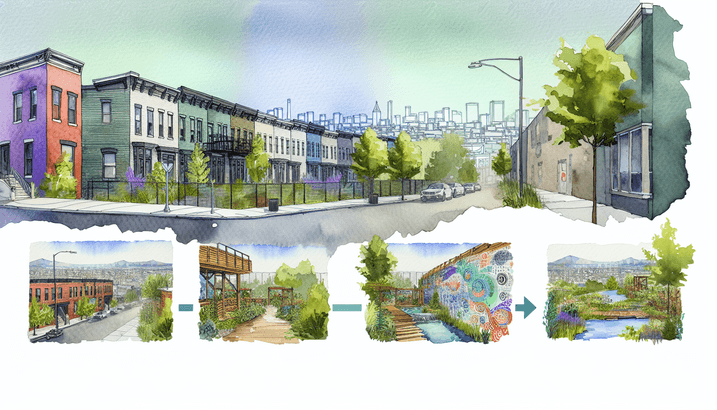Essential Lease Agreement Tips: 7 Crucial Details You Can’t Afford to Miss
Understanding the Importance of a Lease Agreement
A lease agreement is more than just a piece of paper. It serves as a binding contract between the landlord and the tenant, outlining the rights and responsibilities of both parties. But do you know why it’s vital?
A well-drafted lease agreement can prevent disputes and misunderstandings by clearly defining terms and conditions. It offers legal protection to both landlords and tenants, providing a framework for resolving issues. Without such an agreement, you risk facing legal challenges that could have been easily avoided. For more insights on real estate law and tenant protection, visit our Real Estate Law and Insurance section.
Moreover, a lease agreement ensures that all the terms discussed verbally are formally documented and agreed upon. This eliminates any chance of one party claiming ignorance or misinterpretation of the discussed terms. Having everything in written form creates a solid foundation for the rental relationship.
Why is it essential to understand your lease agreement inside and out? Let’s find out as we delve deeper into each critical element of a lease agreement.
Key Parties Involved: Landlord and Tenant
When you sign a lease agreement, who are the primary individuals involved? The answer is simple – the landlord and the tenant. However, knowing their roles and responsibilities is crucial.
The landlord, also known as the lessor, is the property owner who rents out space to the tenant. Their primary responsibility is to ensure the property is livable and meets safety standards. This includes making necessary repairs, maintaining common areas, and adhering to local housing regulations.
The tenant, also known as the lessee, is the individual or entity renting the space. Their primary responsibilities include paying rent on time, maintaining the property in good condition, and respecting the terms outlined in the lease agreement. Tenants must also abide by local laws and regulations.
Understanding the roles of landlords and tenants can help both parties manage expectations and foster a positive rental experience. For more information on leasing, check out our Real Estate Sales & Leasing section.
Property Description: Know What You’re Renting
Do you know exactly what you’re renting? A proper property description in the lease agreement is essential. It should include comprehensive details about the rental unit to avoid any misunderstandings.
The property description should cover the following aspects:
- Address: The exact location of the rental property.
- Unit Details: Specifics about the unit, such as the number of bedrooms, bathrooms, and any additional rooms like a kitchen or living area.
- Included Amenities: Information about what appliances and furnishings are included in the rental.
- Shared Spaces: Any common areas or facilities that come with the unit, such as parking spaces, laundry rooms, or gym facilities.
Why is this level of detail necessary? It helps prevent disputes over what the tenant is entitled to use. A well-documented property description ensures both parties are on the same page regarding what is included in the lease, thus reducing potential conflicts.
Lease Term: Duration and Renewal Terms
How long are you committing to rent? Understanding the lease term is a critical component of any lease agreement. The lease term outlines the duration of the lease, including the start and end dates.
The lease term can vary widely, from month-to-month agreements to multi-year leases. It’s essential to determine a lease term that aligns with your needs and future plans. For short-term or unstable situations, a month-to-month lease may offer more flexibility, while a longer lease can provide stability for tenants seeking a long-term residence.
Renewal terms are equally important. Does your lease automatically renew, or does it require written notice? Understanding how and when to renew the lease can help avoid unexpected moves or lost housing.
In summary, carefully reviewing and understanding the lease term and renewal policies can save you headaches and provide clarity on your rental timeline. Always ensure these details are clearly stated in the lease agreement to avoid confusion.
Rent Details: Amount, Payment Methods, and Due Dates
How much is the rent, and when is it due? Rent details are perhaps the most scrutinized part of any lease agreement. They provide clear instructions on how and when tenants should pay their rent.
The rent section of the lease agreement should include:
- Rent Amount: The exact monthly rent amount.
- Due Dates: The specific date each month when rent is due.
- Payment Methods: Accepted forms of payment, such as checks, bank transfers, or online payments.
- Late Fees: Any penalties for late payments to ensure timely rent collection.
Do you know the consequences of missing a rent payment? Most lease agreements impose late fees and possible eviction if rent is not paid on time. Knowing these details is crucial to maintaining a good rental relationship. For more insights on real estate management, visit our Real Estate Services section.
Ultimately, understanding the rent details in your lease agreement helps you budget effectively and meet your financial obligations without surprises. Landlords benefit from having a clear mechanism for rent collection, reducing the risk of financial disputes.
Security Deposit: Protection for Both Parties
What is a security deposit, and why is it necessary? A security deposit is a sum of money paid by the tenant to the landlord at the start of the lease to cover any potential damages or unpaid rent. This deposit serves as a protection for both parties.
Usually, the security deposit is equivalent to one or two months’ rent. It should be clearly documented in the lease agreement, including:
- Amount: The total security deposit amount.
- Usage Conditions: Specific circumstances where the landlord may use the deposit, such as repair costs or unpaid rent.
- Return Conditions: The conditions under which the deposit will be returned to the tenant at the end of the lease, such as a clean unit and no damage.
- Timeline: The time frame for the security deposit’s return upon lease termination.
Do you know what happens if there’s damage to the property? The landlord can use part or all of the security deposit to cover repairs. However, a written explanation is usually required, detailing the deductions.
Having a well-outlined security deposit section ensures that tenants understand what is expected to receive their full deposit back. Both parties gain a sense of security, knowing that financial protection measures are in place.
Maintenance and Repairs: Who’s Responsible?
Who takes care of the maintenance and repairs in a rental property? This part of the lease agreement clarifies the responsibilities of both the landlord and the tenant, helping to avoid disputes.
Generally, landlords are responsible for major repairs and maintenance, ensuring the property remains safe and habitable. This includes:
- Structural Repairs: Fixing the foundation, roof, walls, and other structural elements.
- Essential Services: Repairing heating, plumbing, and electrical systems.
- Common Areas: Maintaining shared facilities like hallways, elevators, and parking areas.
Tenants, on the other hand, are typically responsible for minor maintenance tasks, such as:
- Cleaning: Keeping the rental unit clean and sanitary.
- Minor Repairs: Light bulb replacements and minor fixes that don’t require professional skills.
- Reporting Issues: Notifying the landlord of any problems that need professional attention.
Why is it important to know these details? Clear guidelines prevent tenants from undertaking unauthorized repairs and landlords from neglecting essential maintenance. For more details on property maintenance, visit our Real Estate Development & Construction section. Both parties benefit from well-maintained property and reduced maintenance disputes.
Additional Clauses: Customizing Your Lease
Can you customize your lease agreement? Yes, additional clauses allow landlords and tenants to include specific provisions tailored to their needs.
Here are some common additional clauses:
- Pet Policy: Rules regarding pet ownership, including pet fees and responsibilities.
- Subletting: Conditions under which the tenant may sublet the property.
- Noise Policy: Restrictions on noise levels to maintain a peaceful environment.
- Alterations: Permissions and restrictions regarding modifications to the property.
Why include additional clauses? These customized provisions address specific concerns and interests, ensuring that both parties are comfortable and secure with their living arrangements. They reduce the risk of misunderstandings and enhance the overall rental experience. For more tips on customizing your lease, see our Interior Design section.
Always carefully review and negotiate additional clauses to make sure they align with your needs. This ensures a more personalized and satisfactory rental agreement.
Final Thoughts to Keep in Mind
As you navigate the rental process, keep these essential lease agreement tips in mind. They are fundamental in ensuring a positive and legally sound rental experience. Understanding the terms and conditions of your lease agreement is crucial to avoiding conflicts and protecting your rights.
Are you ready to sign your lease with confidence? Make sure to review every detail, ask questions if something isn’t clear, and seek legal advice if necessary. By doing so, you can enjoy your new home with peace of mind, knowing that you are well-protected under a fair and comprehensive lease agreement.
Remember, a strong lease agreement is the foundation of a successful rental relationship. Go into your rental experience with informed confidence, ensuring clarity and security for both parties involved. For the latest updates in the real estate world, visit our Real Estate News section.
For additional information, you may also find this article on lease concessions and COVID-19 helpful.




